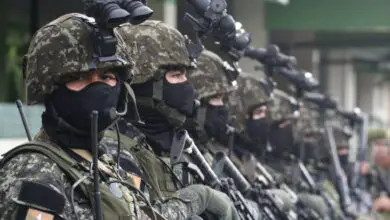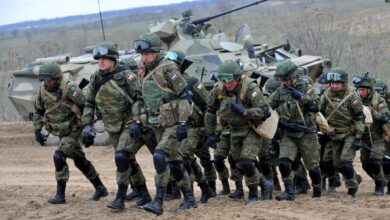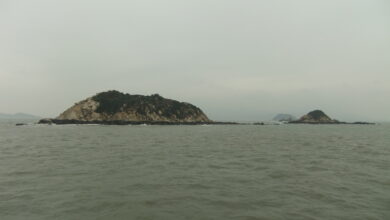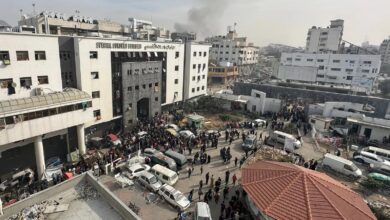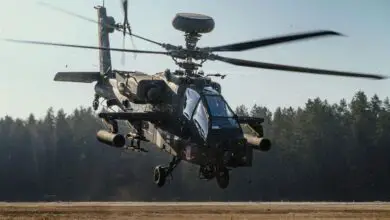At least 19 killed as insurgents attack Myanmar security forces near China border
At least 19 people were killed and 29 injured in northern Myanmar when insurgents attacked government security posts and a casino outside Muse in Shan State, near the border with China on Saturday, May 12, in the most deadly flare-up in recent years.
Muse is at a river crossing between Shan State and China’s Yunnan province, and is a major source of trade between the two countries.
The Ta’ang National Liberation Army, one of several insurgent groups fighting for more autonomy in the north, said it launched the operation, while government and military sources released the casualty toll, which was later disputed by the insurgents.
The TNLA is made up of fighters from the Ta’ang (or Palaung) ethnic group. It is the armed wing of the Palaung State Liberation Front, which wants self-determination for the Ta’ang people.
Myanmar State Counselor’s Office Director General Zaw Htay said in a Facebook post that 15 civilians, a police captain and three government-backed militia members were killed, and 20 civilians, three police officers and six militia members were wounded.
More than 100 TNLA fighters were involved in the attack on a police outpost at the Pan Kham Bridge which began at 5:15 a.m., he said.
A statement posted on the page of Myanmar’s commander-in-chief said the military were pursuing “terrorist insurgents.”
Heavy gunshot from Muse this morning at 6 am. Probably exchange between TNLA and Tatmadaw. pic.twitter.com/q1D8sNCuOl
— Liu Yun刘蕴 (@liuyun5398) May 12, 2018
Attack a response to Tatmadaw operations
The TNLA told The Irrawaddy it launched the offensive on Pan Kham, about a mile from Muse, the Pan Kham Bridge and a nearby casino. The attack ended at about 8:30 a.m.
TNLA spokesperson Mai Aik Kyaw said the operation targeted positions held by the Tatmadaw (Myanmar’s armed forces) and an allied militia “because the Myanmar Tatmadaw has been attacking our temporary camps in the jungle. Also, there are military tensions in areas controlled by our allies, the Kachin Independence Army. Therefore, we launched this minor offensive.”
“We fight because of heavy fighting in our region and the serious offensive in Kachin State,” he told AFP, referring to confrontations in Myanmar’s northernmost state between the Tatmadaw and the Kachin Independence Army.
Mai Aik Kyaw said the casino was targeted because it is protected by the militia. “There have been so many reports from locals about their lives being damaged by thefts, robberies, gambling and drugs. So we attacked them,” he said, adding that the casualties were militia members and their families.
He blamed the high casualty figures on the Tatmadaw and the militia.
“When we attacked, they shot back blindly. We don’t know the exact numbers of deaths and we are trying to confirm whose weapons killed those people. We are sorry for the civilian casualties.”
According to AFP, Mai Aik Kyaw said that the civilian toll was much lower than the number issued by the government.
In a statement later on Saturday, the TNLA said that at total of 32 people died, including six civilians, significantly lower than the official figure of 15. It said 25 militia members were killed, well above the three the government said had died.
Five TNLA members were injured, none crititcally, the statement said.
It is unclear if members of the Kachin Independence Army took part in the attacks, though Myanmar’s commander-in-chief’s said they did.
The TNLA and the KIA attacked Muse of Northern Shan State this morning. pic.twitter.com/MKXzNxalEr
— Liu Yun刘蕴 (@liuyun5398) May 12, 2018
Clashes increasing
Rights defenders say clashes in the north have increased since January as the world focuses on the Rohingya crisis in the west of the country, where Myanmar’s military stands accused of carrying out an ethnic cleansing campaign against the stateless minority in Rakhine.
More than 100,000 displaced people now live in camps in Kachin and Shan states since a ceasefire between the KIA the military broke down in 2011, according to the latest U.N. statistics.
Those fleeing violence have sheltered in tents and even churches in Kachin, which is mainly Christian, as rights groups and rebels accuse the military of blocking aid.
Myanmar’s patchwork of minority ethnic groups make up round a third of the population, but the Bamar, or Burmese, have filled the Buddhist-majority country’s power structures since independence in 1948.
De facto leader Aung San Suu Kyi said ending Myanmar’s long history of clashes was her main priority after she took power in 2016, but she shares power with the military that fought the ethnic insurgencies for decades.
She has been strongly criticised for her stance on the treatment of the Rohingya, who are denied Myanmar citizenship.
More than a third of Myanmar’s townships are affected by unresolved conflict, according to a 2017 report from the Asia Foundation.
With reporting from AFP



